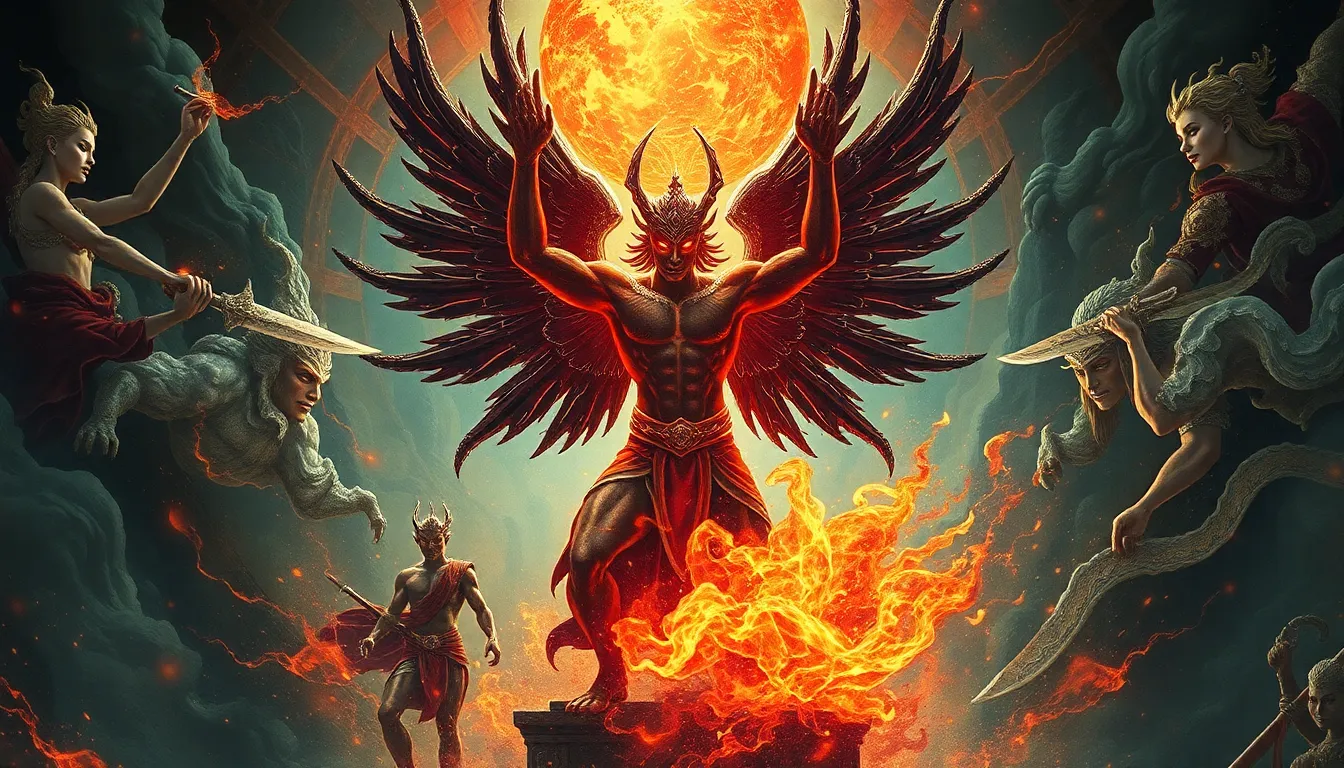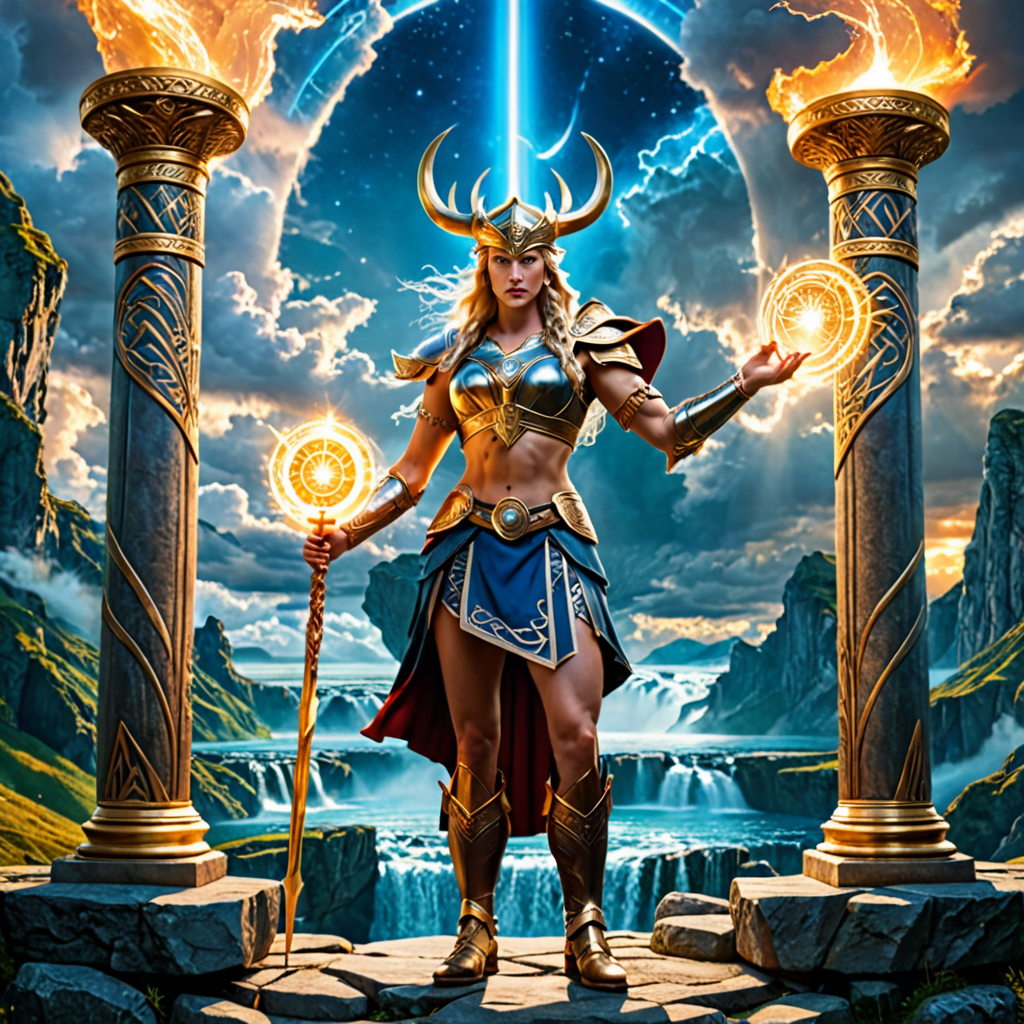The Power of Myth: How Cultural Heroes Influence Society
I. Introduction
Myths have long been a fundamental aspect of human civilization, serving as narratives that explain the unexplainable and imbue societal values with meaning. Cultural heroes are central figures within these myths, embodying the ideals and aspirations of their societies. They play a crucial role in shaping societal values, inspiring individuals, and fostering a sense of community. This article will explore the historical context of myths and heroes, their role in cultural identity, the psychological impact they have, and their representation in media, while also addressing critiques and looking toward the future of cultural heroes.
II. Historical Context of Myths and Heroes
The origins of myths can be traced back to ancient civilizations, where they were used to explain natural phenomena, cultural traditions, and historical events. These stories often featured heroes who performed extraordinary feats, reflecting the values and beliefs of their societies.
As cultures evolved, so did the concept of the cultural hero. From Gilgamesh in Mesopotamian mythology to Hercules in Greek mythology, heroes have adapted to fit the changing moral and ethical landscapes of their times. Today, we observe a rich tapestry of hero narratives across different cultures, each offering unique insights into the human experience:
- In African cultures, trickster figures like Anansi represent intelligence and adaptability.
- In Native American traditions, heroes often embody a deep connection to nature and spirituality.
- In Western literature, figures like King Arthur symbolize chivalry and honor.
III. The Role of Myths in Cultural Identity
Myths serve as a reflection of cultural norms and values, providing a lens through which societies view themselves. They help define what it means to belong to a particular culture, influencing everything from national identity to everyday behavior.
National pride often draws from these mythic narratives. For example, the stories of the American Revolution are steeped in heroic figures like George Washington, whose legacy shapes the identity of the United States. Prominent cultural myths can leave a lasting societal impact by:
- Fostering unity and a sense of belonging among community members.
- Providing moral frameworks that guide behavior and decision-making.
- Inspiring collective action towards common goals.
IV. Archetypes of Cultural Heroes
Cultural heroes often share common characteristics, such as bravery, resilience, and a commitment to justice. However, they can be categorized into different archetypes, each serving unique functions within their narratives:
- The Rebel: Challenging the status quo, exemplified by figures like Rosa Parks.
- The Sage: Offering wisdom and guidance, as seen in characters like Gandalf from “The Lord of the Rings.”
- The Savior: Rescuing others from peril, akin to figures like Superman.
While ancient heroes often exhibited traits of physical strength and valor, modern heroes may reflect more complex characteristics, including vulnerability and emotional intelligence, thus appealing to contemporary audiences.
V. The Psychological Impact of Cultural Heroes
Cultural heroes can have a profound psychological impact on individuals, often serving as role models or sources of inspiration. Theories of hero worship suggest that people may develop emotional attachments to these figures, leading to:
- Increased motivation to emulate their qualities.
- A sense of belonging to a larger narrative or movement.
- Enhanced resilience in facing personal challenges.
Heroes can play a crucial role in helping individuals cope with societal challenges, offering hope and a sense of purpose during turbulent times.
VI. Media Representation of Cultural Heroes
The representation of cultural heroes in literature, film, and art significantly influences how these figures are perceived and understood. Over the decades, the portrayal of heroes has evolved:
- Classic literature often depicted heroes with clear moral codes, while modern narratives may present more ambiguous characters.
- Films and television have popularized superhero culture, reshaping public perceptions of heroism.
Furthermore, social media has introduced new dimensions to hero narratives, allowing for a more democratized approach where unsung heroes can gain recognition and influence through grassroots movements.
VII. Heroes as Agents of Social Change
Many heroes throughout history have emerged as agents of social change, inspiring movements that have transformed societies. Historical examples include:
- Martin Luther King Jr., who championed civil rights in the United States.
- Malala Yousafzai, advocating for girls’ education worldwide.
Contemporary heroes continue to address pressing issues such as climate change and social justice, demonstrating that heroism often lies in the courage to confront difficult truths and advocate for change. Grassroots heroes often emerge within local communities, highlighting the power of collective action.
VIII. Critiques and Controversies Surrounding Cultural Heroes
While cultural heroes can inspire, there are also critiques surrounding the idealization of these figures. The danger of viewing heroes as perfect can lead to:
- Unrealistic expectations for individuals to emulate.
- Disappointment when heroes are revealed to have flaws.
Debates often arise surrounding the legacies of historical figures, questioning whether they should be celebrated or critiqued based on contemporary values.
IX. The Future of Cultural Heroes
As society continues to evolve, so too will the narratives surrounding cultural heroes. Emerging trends suggest that:
- Diversity and inclusivity will play significant roles in shaping new hero narratives.
- Digital platforms will allow for the rise of new heroes who address global challenges.
The potential for future heroes to address pressing global issues is immense, as they can mobilize communities and foster collective action through innovative means.
X. Conclusion
Cultural heroes wield significant influence over society, shaping values, inspiring individuals, and fostering a sense of community. The enduring power of myth continues to resonate in contemporary life, reminding us of the importance of recognizing and cultivating new heroes for future generations. As we navigate an ever-changing world, it is essential to celebrate the heroes who challenge us to strive for a better tomorrow.


